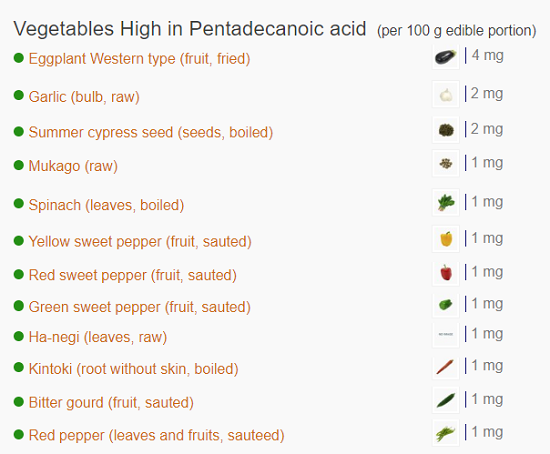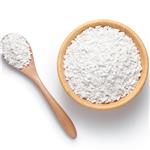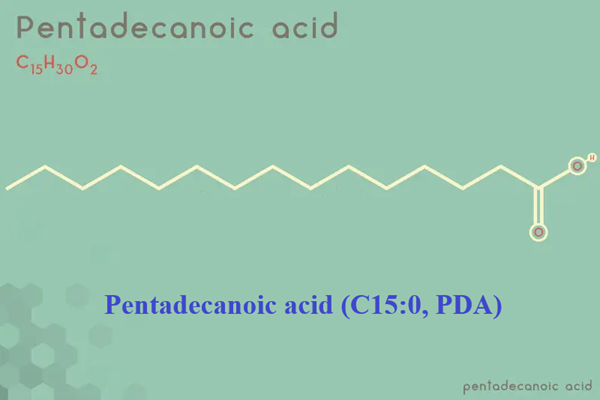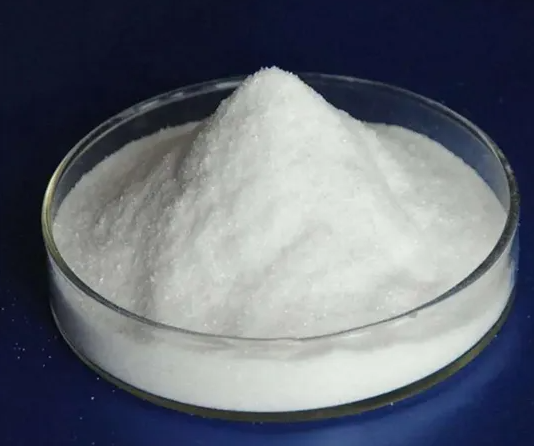The benefits of Pentadecanoic acid
Introduction
Pentadecanoic acid (C15:0), an odd-chain saturated fatty acid, has mounting evidence of being essential to supporting cardiometabolic and liver health. People with low circulating C15:0 concentrations have a higher risk of having or developing type 2 diabetes, heart disease, nonalcoholic fatty liver disease, and nonalcoholic steatohepatitis, as well as specific types of cancer. C15:0 is present in 1 to 3% of dairy fat, and as a primarily exogenous molecule, circulating C15:0 concentrations reflect dietary C15:0 intake. Epidemiological, in vivo, and in vitro studies support the notion that 100 to 300 mg of C15:0 is needed daily to effectively achieve and maintain active circulating C15:0 concentrations of 10 to 30 µM[1]. As such, there is building evidence for minimum daily C15:0 requirements and defined C15:0 nutritional deficiencies.
Occurrence
The primary dietary source of C15:0 is whole-fat dairy. Because more people are avoiding cow’s milk, population-wide C15:0 levels have been decreasing. While foods contain trace amounts of C15:0, these foods also have ‘bad’ saturated fat calories and have C15:0 in a less bioavailable form. C15:0 is available as a bioavailable supplement. Based on pharmacokinetic and activity studies, people should get between 100 to 200 mg of C15:0 daily.

Biological activity
Pure C15:0 is a pleiotropic nutrient with broad-reaching mechanisms of action, including AMPK and PPAR-α/δ activation, as well as mTOR, JAK-STAT, and HDAC-6 inhibition. These mechanisms are aligned with the demonstrated anti-inflammatory, antifibrotic, and anticancer activities of C15:0 in vitro and in vivo. Beyond targeting key receptors, C15:0 is a stable saturated fat readily incorporated into the lipid bilayers of cell membranes, including red blood cells, to lower the risk of lipid peroxidation and premature lysis. Further, C15:0 has antimicrobial properties, including growth inhibition of pathogenic bacteria and fungi. Combined, these broad positive activities of C15:0 support its role as an essential nutrient to support long-term physiological health[2].
These pleiotropic cell-based activities likely explain C15:0's clinically relevant benefits observed in vivo. High-fat diet-induced obese mice supplemented daily with oral C15:0 for 12 weeks had lower glucose, cholesterol, weight gain, and pro-inflammatory cytokines than non-supplemented controls [28]. Daily C15:0 supplementation lowered inflammation, cholesterol, triglycerides, and attenuated anaemia and liver fibrosis in a nonalcoholic fatty liver disease model. Because C15:0 is an established dietary active fatty acid not readily made by the body, has lower body levels associated with poorer cardiometabolic and liver health, and has demonstrated beneficial and pleiotropic activities directly related to cardiometabolic, immune and liver health, C15:0 has been proposed as an essential fatty acid.
References:
[1] STEPHANIE VENN-WATSON N J S. Pentadecanoic Acid (C15:0), an Essential Fatty Acid, Shares Clinically Relevant Cell-Based Activities with Leading Longevity-Enhancing Compounds.[J]. Nutrients, 2023, 15 21. DOI:10.3390/nu15214607.[2] STEPHANIE K VENN-WATSON C N B. Broader and safer clinically-relevant activities of pentadecanoic acid compared to omega-3: Evaluation of an emerging essential fatty acid across twelve primary human cell-based disease systems[J]. PLoS ONE, 2022. DOI:10.1371/journal.pone.0268778.
You may like
Related articles And Qustion
See also
Lastest Price from Pentadecanoic acid manufacturers

US $2.00/kg2025-04-21
- CAS:
- 1002-84-2
- Min. Order:
- 1kg
- Purity:
- 0.99
- Supply Ability:
- 10000

US $6.00/kg2025-04-21
- CAS:
- 1002-84-2
- Min. Order:
- 1kg
- Purity:
- 99%
- Supply Ability:
- 2000KG/Month




